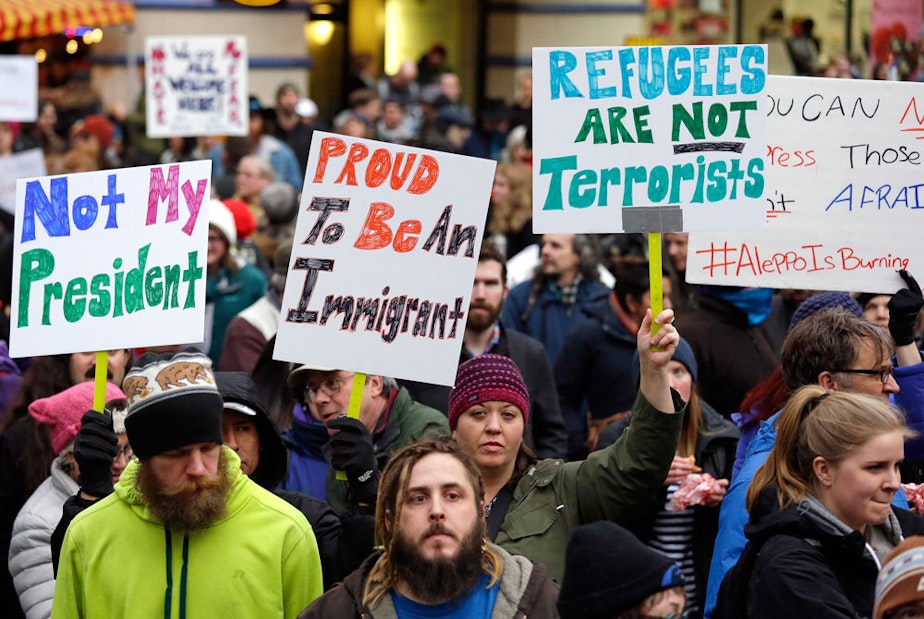Still a Muslim ban, opponents say of White House’s new travel order

Civil rights organizations in the Northwest plan to fight the Trump administration's latest travel ban. The president wants to limit U.S. travel for people in eight countries, saying it will help prevent terrorism. The restrictions are scheduled to go into effect October 18.
One big change, compared to earlier versions, is that not all of the countries listed have Muslim majorities. People in North Korea, and certain government officials in Venezuela, have been added to the travel ban.
Opponents have said the earlier travel bans discriminated against Muslims. This week the Council on American-Islamic Relations (CAIR) is standing by that argument.
Jasmin Samy with CAIR of Washington state says the new version is still effectively a Muslim ban, and she thinks there's a reason the White House added new countries.
Samy: "We call them token additions. It's just to make people feel that, oh look we are not against any Muslims, we are trying to do this for security purposes."
Sponsored
CAIR is one of many organizations fighting earlier Trump travel bans in court.
Samy: "This has promoted anxiety again in the community, there is a negative impact on families. Hopefully we will win this, as long as it takes, and that we want equality for everyone."
Lawsuits against the president's order have also come from Washington state’s Attorney General's office, which says it's reviewing the new order.
The U.S. Supreme Court is expected to hear the case and this week asked opponents and the White House to file new arguments in light of the policy changes.

